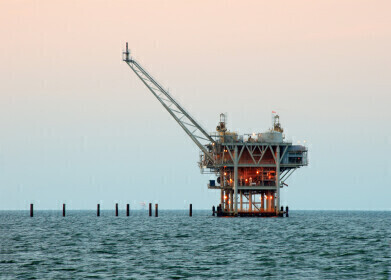Fuel for Thought
North Sea Authority approves controversial Rosebank oil and gas field
Sep 29 2023
The North Sea Transition Authority, an arm of the Department for Energy Security and Net Zero, gave the green light to the controversial Rosebank oil field project, located northwest of Shetland. Consequently, this field will see an investment of approximately USD 3.8 bn and the extraction of an estimated 300 million barrels of oil from what is the United Kingdom’s largest untapped oil and gas field. In the coming years, a series of subsea wells connected to a repositioned Floating Production Storage and Offloading vessel (FPSO) will be constructed for operations to commence at some time between 2026 and 2027, when the extracted oil will be transferred to refineries on the continent via shuttle tankers and the gas exported through the West of Shetland Pipeline system into mainland Scotland. This approval demonstrates that Rosebank adheres to the government’s own stipulations, like the North Sea Transition Deal which aims to ensure that the remaining demand for oil and gas is satisfied with minimal emissions. As such, the facility is to be prepared for electrification, with Equinor, one of the venture’s two owners, supposedly seeking to power operations from the shore to mitigate impacts.
However, when considering climate impacts, there is the slight problem of the oil and gas itself. It has been claimed, for instance, by Carbon Brief that if the entirety of the field were to be consumed, a quantity of carbon dioxide would be released equivalent to the combined emissions of 89 of the world’s lowest emitting countries in one year. Given that climate research non-profit Oil Change International published a report in 2016 that the consumption of all currently operative oil and gas fields may well be enough to push temperatures over that all-important 1.5°C to which all signatories of the Paris Agreement are bound, many experts consider the opening of new fields to be irresponsible. With the war in Ukraine ongoing, the government’s line is energy security, despite an admission by Energy Secretary Claire Coutinho that “much” of Rosebank oil will be sold back to the United Kingdom after refining in Europe, in which case the National Grid will be competing for the fuel in an international market. As a result, many fear that these demand-side pressures will not, in the end, result in cheaper energy for Britons.
Whilst Leader of the Opposition Sir Keir Starmer has committed his party to no new oil and gas licenses, he has so far refused to revoke Rosebank’s license should Labour form a government following a general election. With both major parties unopposed to the development, it seems, then, that Rosebank is likely to go ahead.
The project, assessed by independent entities like Wood Mackenzie and Voar Energy, is anticipated to spur around £8.1 billion of direct investment over its lifetime, majorly benefiting UK-based businesses. It promises to generate around 1,600 jobs during the peak construction phase and sustain approximately 450 UK-based jobs throughout its operational lifespan. Equinor and Ithaca Energy have foreseen the field's potential to produce 69,000 barrels of oil and 44 million cubic feet of gas a day at its peak.
Digital Edition
PIN 25.5 Oct/Nov 2024
November 2024
Analytical Instrumentation - Picturing Viscosity – How Can a Viscometer or a Rheometer Benefit You? - Sustainable Grease Formulations: Evaluating Key Performance Parameters and Testing Method...
View all digital editions
Events
Dec 03 2024 Dusseldorf, Germany
Dec 08 2024 Anaheim, CA, USA
Turkey & Black Sea Oil and Gas
Dec 11 2024 Istanbul, Turkey
Dec 19 2024 Aurangabad, India
Jan 20 2025 San Diego, CA, USA



















